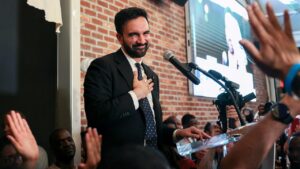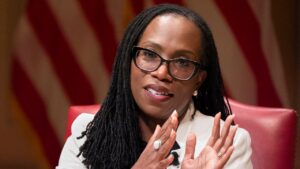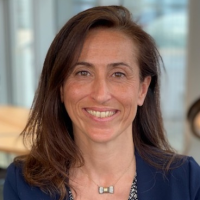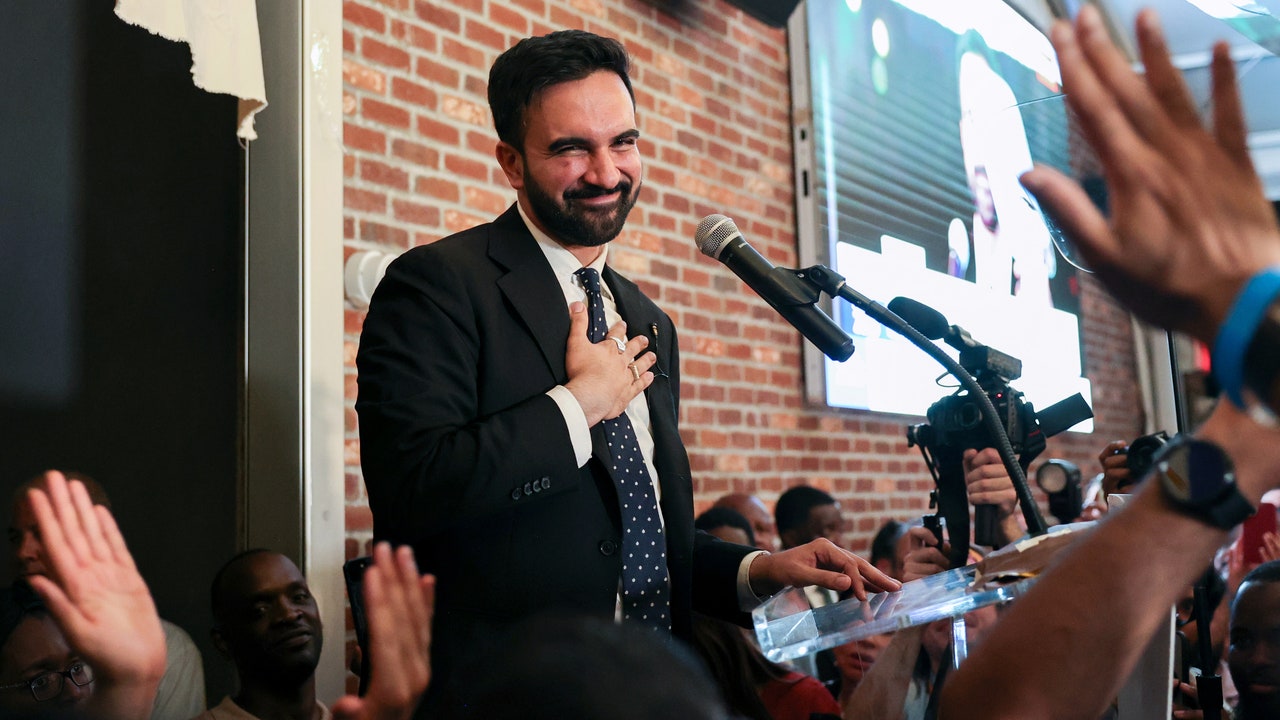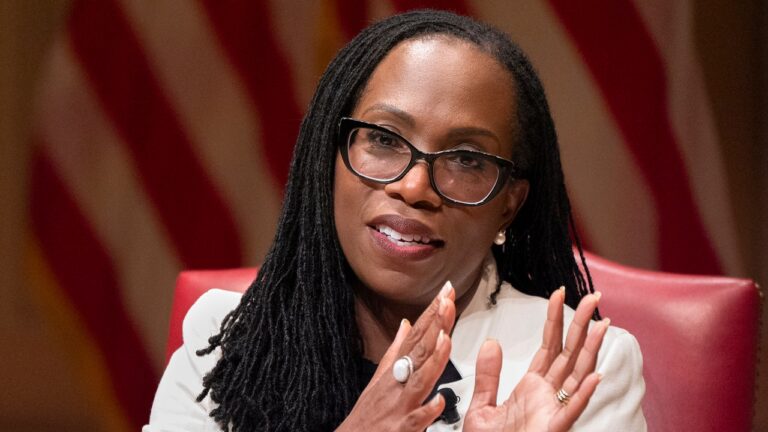Zohran Mamdani barely slept the night before primary day. At 5:30 A.M. on Tuesday, the city’s hottest day in more than a decade, he welcomed reporters to a press conference in Astoria Park, Queens, a patch of green overlooking the East River, not far from his rent-stabilized apartment. As the day broke, the sky behind the candidate blazed white. Mamdani stood behind a bare podium and scrolled with an index finger on his phone, reading a short speech decrying the “architects” of the city’s affordability crisis—he called out his main opponent, the disgraced former governor Andrew Cuomo—and promising a way to sustain the city. As he read, his right hand trembled slightly.
Mamdani, dressed in a black suit despite the temperature’s climb toward a hundred degrees, was asked what, if anything, about his campaign had surprised him. “The pace at which we became the clear contrast to Andrew Cuomo surprised me,” he said. The velocity of events in the past few weeks had shocked even the candidate, and he still sounded like a man preparing for the very real possibility of defeat. “We emerged as the clear second place in this race far before we had expected,” Mamdani added. Later, sitting on a warm curb in Jackson Heights, we discussed his struggles to reach the city’s Black voters in particular. “I understand that when I go into a church and I’m speaking to voters who have been casting votes in mayoral elections for decades, and who have known politicians for a similar period of time, that to learn someone’s name and cast aside all that they have known in the same instance is a difficult task,” he told me. “I started this race at one-per-cent name recognition. Much of this race has been one of introduction.”
I asked Mamdani what he planned to do if he came second to Cuomo in the primary. Would he attempt to run in the general election this fall on the progressive Working Families Party ballot line, and challenge the Democratic Party from the outside? “My only focus has been on today, I tell you that sincerely,” he said. I asked him, if he beat Cuomo, whether he would call on the former governor to drop out, instead of running in the general election as an independent, as Cuomo had vowed to do. Mamdani smiled and said, “I’m going to spend the rest of the day thinking about that.”
Mamdani, I now say with the understatement of a guilty party, was underrated by his opponents, and by the press. Perhaps not at the start of the campaign, this winter, when he was, by his own description, a “no-name,” but definitely by the end, when his campaign transcended the typical bounds of municipal political debate. (Around 8 A.M. on primary day, Mamdani’s team escorted him to a secret meeting, which turned out to be a video recording with Emily Ratajkowski.) When he canvassed in the Jackson Heights–Roosevelt Avenue station, one of the busiest subway terminals in the city, one out of every dozen or so voters came undone at the sight of him. “Oh, my God, thank you so much!” a young commuter wearing large headphones, a nose ring, and a tote bag bearing the inscription “Gender Affirming Health Care Saves Lives” said. A woman in scrubs gasped, pulled down her face mask, and whipped out her phone to show Mamdani a picture of her “I VOTED” sticker. In the Bronx, near Yankee Stadium, a group of schoolkids passed by him in a frenzy. “I seen him on TV!” one shouted. Mamdani shook their hands and each walked off as if they’d been bestowed a prize. “He came out to us,” a Black woman named Rosa, who recorded the scene on her phone, said. “This is what politicians used to do.” In northern Manhattan, he was meeting on the street with a group of volunteers when a rival, smaller group of volunteers wearing Cuomo T-shirts walked by. One of the Cuomo volunteers stopped to ask Mamdani to take a selfie with him.
Last Friday night, Mamdani walked the length of Manhattan from Inwood to Battery Park. The resulting campaign video, which captured New Yorkers of all stripes alongside their young, would-be leader on the move, was beautiful, a portrait of the city on a hot summer night. But, as we talked on the curb in Jackson Heights, it was clear that Mamdani bristled at being reduced to a whiz-bang social-media candidate. He’d campaigned on a set of policy goals—slightly higher taxes on the wealthy and corporations, a rent freeze for rent-stabilized apartments, free buses, universal child care, and more—that had helped him build support, and shouldn’t that count for something in a democracy? It does when you get the votes. It seems that on Tuesday, he redrew the city’s political maps, drawing notable support in upper Manhattan, eastern Queens, and South Brooklyn—areas that were thought to be solid Cuomo territory. As of Wednesday morning, Mamdani had tallied 43.5 per cent of first-choice votes in the city’s ranked-choice electoral system, with ninety-three per cent of expected votes reported, virtually guaranteeing his victory when the lower-ranking candidates’ votes get redistributed.
One public service that Mamdani has already rendered to the city: all but ending the long, consequential, and noxious political career of Cuomo, who was attempting a rehabilitation four years after resigning as governor in a sexual-harassment and abuse-of-power scandal. In his campaign, Cuomo insisted that the city was in chaos and that only he could fix it, while avoiding direct contact with voters and the press. He led in every poll conducted of the race until its closing days; marshalled endorsements among the city’s most senior and powerful politicians, labor unions, and community leaders; and carried himself as if victory were inevitable. Cuomo spent nearly eleven years as governor, and every year he accrued more power, until in the end he was arguably the most powerful governor in the history of the state. His mania reached such a state that he signed a five-million-dollar book deal to write a memoir bragging about his pandemic leadership before there was even a vaccine, and while scores of New Yorkers were still dying of COVID every week. In the end, he got rinsed in a primary by a thirty-three-year-old socialist whom he out-fund-raised by more than twenty-five million dollars. Quite simply, Cuomo underestimated how tired New Yorkers were of him. On Tuesday night, Brad Lander, the city’s comptroller, who came in third in the race, after he and Mamdani cross-endorsed each other in the campaign’s final days, said what many voters were thinking: “Good fucking riddance.”
On the curb in Jackson Heights, Mamdani and I had talked about the new New York, shaped by a youth coalition and class-conscious messaging, and the old New York, defined by ethnic blocs, institutions, and neighborhoods. He called age a “defining aspect” of the election, but he insisted that the old and the new didn’t have to be in conflict. “I’ve been heartened in many of my conversations with older New Yorkers, who’ve told me that they were introduced to the campaign by their son or their daughter, their niece or their nephew,” he said. “I think it’s indicative of a new generation of leadership.” Preliminary results on Tuesday showed Mamdani trailing Cuomo in the city’s poorest neighborhoods by an aggregate thirteen per cent, a fact that suggests how much work Mamdani has ahead of him to establish himself as the candidate of the city’s working class. Mamdani said that the runaway cost of living in the city was universal, even if it was experienced more intensely by those at the bottom of the city’s economy. Both renters and homeowners, he said, are feeling the squeeze. “One in four New Yorkers are living in poverty, and yet we know that far more New Yorkers are living in a state of permanent anxiety as to whether or not they can keep affording the city,” he told me. “And that anxiety extends through multiple income brackets, and it showcases the way in which this is a crisis that is suffocating many rungs of life across these five boroughs, and a crisis that is threatening to make this a city that once was where you could make it now just where you can spend it.”
There was something else going on in this election that didn’t click for me until I followed Mamdani around on primary day. The race wasn’t just about old New York versus new New York; it was about the politics of the visible (tweeting, door-knocking, organizing) and the invisible (power, relationships, familiarity). Mamdani is on people’s phones and on their streets, his volunteers wear his merch, and he offers explicit promises, which he’ll now be judged on and expected to deliver. In conducting his campaign via checkbook, driving around town in his Dodge Charger, Cuomo left the public to imagine what power he could have as mayor. There was a popular theory going around during the campaign that, in a world run by assholes, perhaps New Yorkers were looking for an asshole of their own to run the place. That theory’s been exploded. Rather than a display of machine power, Cuomo’s campaign now looks more like a listless exercise conducted by a bitter old man. Cuomo and his allies, clearly trying to stir the Islamophobia that took root in the city after 9/11, spent millions of dollars on attack ads and mailers portraying Mamdani as an unsafe choice for New Yorkers, particularly taking pains to smear him as an antisemite. Yet Mamdani racked up votes even in some Orthodox Jewish neighborhoods. Regular New Yorkers encountering Mamdani on the street don’t recoil. The most fervent fear of him was expressed by the powerful.
That Mamdani is young and will need to prove himself if he becomes mayor is indisputable. That his mayoralty could end in failure and frustration is just a matter of statistics—most New York City mayors have been seen as failures in one way or another, and many have been outright disasters. But the fact that the city’s wealthiest and most powerful became obsessed with the risks of a Mayor Mamdani, while overlooking the risks of a Mayor Cuomo (at least as high, given his record) is an embarrassment.
On Tuesday night, as Mamdani’s staff and volunteers celebrated deliriously at a rooftop brewery in Long Island City, the general election was kicking off. Despite conceding the primary to Mamdani—oh, for a tape of that call—Cuomo issued a statement indicating that he was still weighing whether to run in November as an independent. Eric Adams, who has already announced his intention to do so, released his schedule for Wednesday, which includes a morning announcement on “Combatting Islamophobia and Other Faith-Based Hate,” to be held in the City Hall rotunda. Shortly after midnight, a triumphant Mamdani appeared before his supporters, gazing out at the crowd chanting his name in unison. Two teleprompters were placed before him. “Solidarity,” he said. “When I look out at this room and out onto the midnight skyline, that is what I see.” He quoted Nelson Mandela and F.D.R., vowing to make the city more affordable for working people and to protect the city’s millions of immigrants from ICE. Before Tuesday, the left in New York City, and across America, was reeling, and 2018, when Alexandria Ocasio-Cortez upset the powerful Queens Democrat Joe Crowley in a Democratic primary, looked increasingly like a high-water mark. Now a member of the Democratic Socialists of America is within striking distance of City Hall. The fall campaign is no sure thing—Mamdani’s stunning performance rests on fewer than half a million votes, in a city more than sixteen times that size. But, as he gave his speech in the first minutes of Wednesday morning, his hands were no longer trembling. ♦
